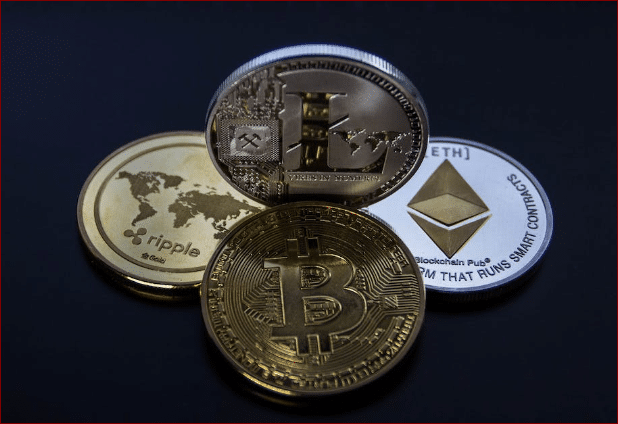Trade dynamics have always been a crucial component of the global economy. As technology advances at an unprecedented pace, it is essential to understand how these advancements impact global trade. In recent years, the emergence of Quantum Artificial Intelligence (AI) has added a new dimension to this dynamic. This article aims to explore the intersection of Global Trade Dynamics and Quantum ai, and the implications it may have for the future of trade.
Understanding global trade dynamics
Global trade has evolved significantly over the years, reflecting changes in technology, politics, and global economics. Understanding these dynamics is essential in comprehending the current state of global trade and predicting its future trajectory.
The evolution of global trade
The evolution of global trade can be traced back to ancient civilizations, where traders would exchange goods along established routes. However, the advent of seafaring vessels and the discovery of new trade routes during the Age of Exploration revolutionized global trade. This opened up new opportunities for exploration and commerce, enabling the exchange of goods, ideas, and cultures between nations.
In more recent history, the Industrial Revolution further transformed global trade, paving the way for mass production and the growth of multinational corporations. The rise of international trade agreements, such as the General Agreement on Tariffs and Trade (GATT) and its successor, the World Trade Organization (WTO), further facilitated global trade and economic interdependence.
Key factors influencing global trade
Several factors influence global trade dynamics. One such factor is government policies, including trade agreements, tariffs, and regulations. These policies can either facilitate or hinder the flow of goods and services between nations. Economic conditions, such as GDP growth rates, inflation, and currency exchange rates, also play a significant role in shaping global trade.
Societal and cultural factors, such as consumer preferences, market trends, and social norms, impact the demand for specific products and services, consequently influencing global trade patterns. Additionally, technological advancements, such as transportation infrastructure, digital connectivity, and automation, provide new opportunities and challenges in the global trade landscape.
The impact of technology on global trade
Technology has been a driving force behind changes in global trade dynamics. The internet and digital platforms have revolutionized the way businesses operate, enabling seamless communication and transactions across borders. E-commerce has seen exponential growth, allowing small and medium-sized enterprises to access global markets easily.
Advancements in logistics and supply chain management technologies have improved efficiency and reduced costs, making trade more accessible and affordable. Furthermore, the rise of artificial intelligence and machine learning has automated several aspects of trade, such as inventory management, pricing strategies, and targeted marketing.
Introduction to Quantum AI
Quantum AI represents the fusion of two cutting-edge fields – quantum computing and artificial intelligence. While traditional AI focuses on simulating human intelligence using computational algorithms, quantum AI harnesses the power of quantum mechanics to tackle complex computational problems.
Defining Quantum AI
Quantum AI utilizes quantum algorithms to process and analyze vast amounts of data, performing computations faster and more efficiently than traditional computers. It leverages the principles of superposition and entanglement, allowing for parallel processing and exploring multiple possibilities simultaneously.
By harnessing the unique properties of quantum particles, such as qubits, quantum AI has the potential to revolutionize various fields, including finance, healthcare, and of course, global trade.
The potential of Quantum AI
The potential applications of quantum AI in global trade are vast. It can enhance forecasting models, optimize trade routes, and streamline regulatory processes.
In trade forecasting, quantum AI can analyze complex trade patterns and historical data to predict market trends accurately. This can help businesses make informed decisions regarding production, inventory management, and market entry strategies. By enabling more accurate demand forecasting, quantum AI can reduce waste and increase the efficiency of global supply chains.
Quantum AI vs Traditional AI
Compared to traditional AI, quantum AI offers several advantages. While traditional AI algorithms excel at processing structured data, they struggle with unstructured data, such as images or natural language processing. Quantum AI, on the other hand, can handle these types of data more effectively, potentially uncovering insights and patterns that were previously hidden.
Additionally, quantum AI has the potential to solve optimization problems more efficiently. Trade optimization, for example, involves finding the most efficient allocation of resources across various trade routes, taking into consideration multiple variables. Quantum AI algorithms can explore a vast number of possibilities simultaneously, enabling faster and more accurate optimization solutions.
The intersection of global trade and Quantum AI
The intersection of global trade and quantum AI holds significant promise for revolutionizing various aspects of trade, from forecasting to optimization and regulation.
Quantum AI in trade forecasting
Trade forecasting plays a crucial role in helping businesses anticipate market trends and adjust their strategies accordingly. Quantum ai can process vast amounts of data, including historical trade patterns, geopolitical events, and economic indicators, to provide more accurate and detailed forecasts.
Improved trade forecasting facilitated by quantum AI can enable businesses to make proactive decisions, such as adjusting production levels, optimizing inventory, and identifying emerging market opportunities.
Quantum AI in trade optimization
Trade optimization involves finding the most efficient routes and shipping methods to minimize cost and maximize efficiency. Quantum AI algorithms can handle the complexity of multi-variable optimization problems, considering factors such as transportation costs, delivery times, customs regulations, and trade policies.
By leveraging the computational power of quantum AI, businesses can optimize their supply chains, reduce shipping times, and streamline logistical processes. This ultimately leads to cost savings and improved customer satisfaction.
Quantum AI in trade regulation
Trade regulation is a crucial aspect of global trade, ensuring fair competition, protecting intellectual property, and maintaining consumer safety. Quantum AI can play a significant role in enhancing trade regulation processes.
Through advanced data analysis and pattern recognition, quantum AI can detect anomalies, identify potential risks, and improve trade compliance. This can help regulatory agencies streamline their monitoring and enforcement efforts, contributing to a more transparent and efficient global trading environment.
Future implications of Quantum AI on global trade
The integration of quantum AI into global trade is expected to have far-reaching implications, reshaping the dynamics of international commerce and influencing trade policies.
Predicted changes in trade dynamics
With the increased accuracy and efficiency offered by quantum AI, global trade dynamics are likely to undergo significant changes. By enabling better forecasting and optimization, businesses can adapt quickly to market fluctuations, reducing risks and maximizing opportunities.
The integration of quantum AI into supply chain management can lead to faster delivery times, reduced wastage, and improved sustainability practices. This, in turn, can enhance customer satisfaction and brand reputation.
Quantum AI and trade policy
As quantum AI continues to advance, trade policies will need to adapt to accommodate these technological advancements. Governments and regulatory bodies will play a vital role in ensuring a fair and equitable global trade environment, while also safeguarding national interests.
Trade policies may need to address the ethical implications of quantum AI in areas such as data privacy, algorithmic transparency, and intellectual property rights. Collaborative efforts between governments, businesses, and international organizations will be essential to navigate these challenges successfully.
Quantum AI and economic growth
The integration of quantum AI into global trade has the potential to stimulate economic growth. By enabling businesses to make more informed decisions, optimize supply chains, and reduce waste, quantum AI can enhance productivity and competitiveness.
Furthermore, the development and implementation of quantum AI technologies can spur innovation and create new job opportunities. Governments and businesses must invest in research and development in this field to maximize its potential for economic growth.
Conclusion
In conclusion, the convergence of global trade dynamics and quantum AI presents a paradigm shift in how we understand and engage in international commerce. As technology continues to progress, businesses and governments must embrace these advancements and adapt their strategies and policies accordingly.
By leveraging the power of quantum AI, businesses can gain a competitive edge, optimize their trade operations, and navigate the complexities of global markets more effectively. However, it is crucial to address the ethical, regulatory, and economic implications that arise from the integration of quantum AI into global trade.
As we move forward, it is essential to foster collaboration between industry leaders, policymakers, and researchers to harness the full potential of quantum AI in shaping a sustainable, inclusive, and prosperous global trade landscape.
DISCLAIMER – “Views Expressed Disclaimer: Views and opinions expressed are those of the authors and do not reflect the official position of any other author, agency, organization, employer or company, including NEO CYMED PUBLISHING LIMITED, which is the publishing company performing under the name Cyprus-Mail…more


